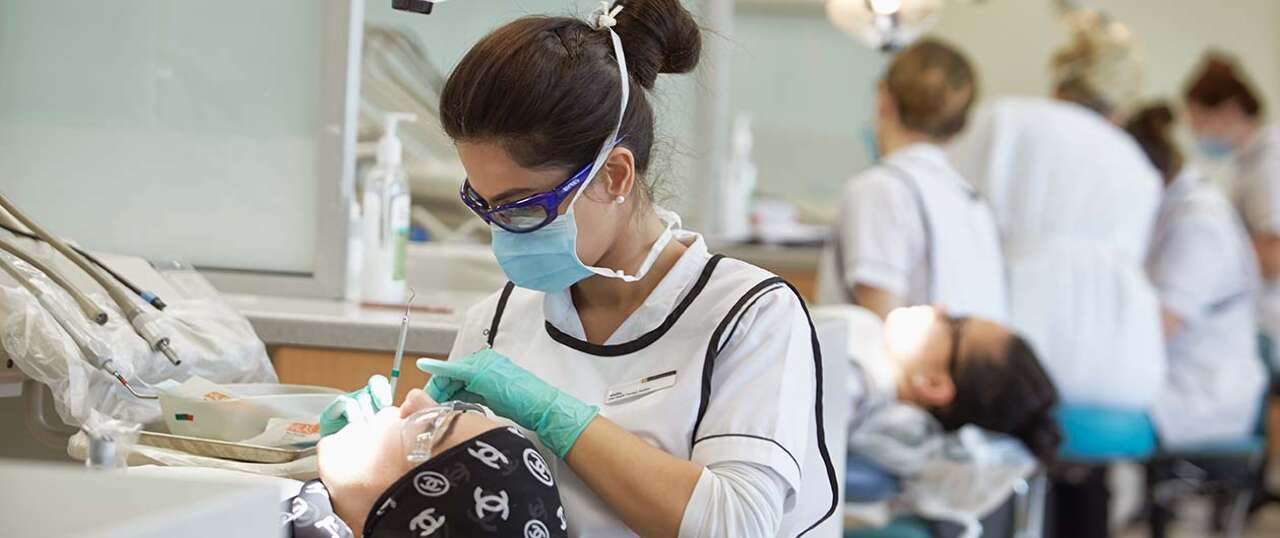Overview
Overview
Oral health therapists are experts in diagnosing, treating and preventing oral disease in patients of all ages. They are registered independent dental practitioners, skilled in various dental treatments, including deciduous tooth removals, some fillings and periodontal therapy. Oral health therapists promote oral health, encourage healthy oral hygiene behaviours and prevent oral disease.
In this course, you’ll learn how to communicate with a diverse group of patients, develop public health initiatives, change behaviours and manage oral and dental diseases.
Throughout your studies, you’ll complete various placements, collaborating with dentists and other healthcare professionals to address the oral health needs of individual patients.
Upon graduating, you’ll have the knowledge, practical skills and confidence required to commence your career as an oral health therapist.
This can be a physically and mentally challenging course. Please familiarise yourself with the inherent requirements before applying.
What jobs can the Oral Health Therapy course lead to?
Careers
- Oral health therapist
- Oral health researcher
- Oral health educator
Industries
- Dental practice
- Hospital
- Government and community health
- Tertiary education
- Aged care and residential care
What you'll learn
- identify oral disease and synthesise information to develop appropriate preventive and treatment plans to support the oral health needs of individuals, including special care
- apply problem-solving, critical thinking and decision-making skills in the management of oral disease in individuals and the community, utilising contemporary technologies relevant to dental practice in a responsible and effective manner
- identify oral disease and synthesise information to develop appropriate preventive and treatment plans to support the oral health needs of individuals, including special care
- provide appropriate patient care and oral health education by applying evidence-based clinical principles and behaviour management techniques, and apply contemporary technologies relevant to dental practice in a responsible and effective manner
- communicate effectively with patients, key stake holders and other health professionals
- utilise lifelong learning skills promoting ongoing personal and professional development to offer the best possible care to individuals and the community
- promote oral health and general health of individuals and the community by working collaboratively and considering cultural differences
- demonstrate cultural awareness and promote equal access to preventive oral health care for the community
- practice in a professional and ethical manner as part of the dental team and critically reflect on care provided



